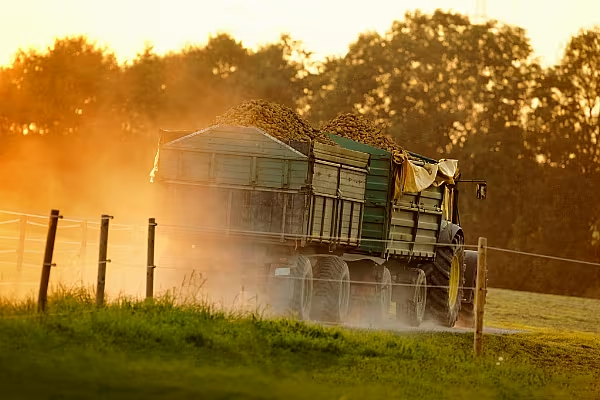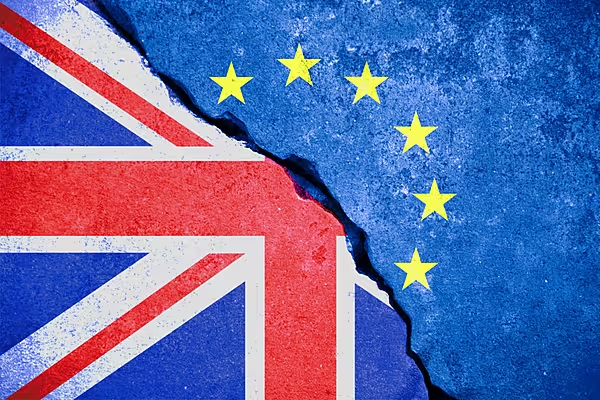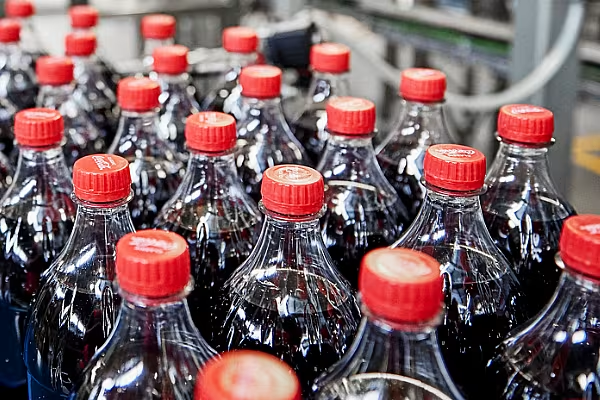As part of the UK200Group's Campaign for Clarity on the EU referendum, the group asked its members and their clients to contribute their most important business questions to a document that was then submitted to Vote Leave.
Now that the UK has voted to leave the EU, here are Vote Leave’s answers to the key business questions posed by SME owners, which may hold some clues as to what the future may hold.
Agriculture
SME Question:
1. What would happen with farming subsidies? Would we keep much the same model, and either pay the same and have our farmers receive more than they do now or pay less and have them receive the same, or would we move to a different model?
Vote Leave Answer:
It is not necessary to be a member of the scheme to guarantee funding or subsidies - the UK supported those who produce its food for years before joining the EU, and would continue to do so after we Vote Leave. British farmers would continue to be supported after we Vote Leave. Switzerland, Norway, and Iceland all support their farming sectors outside the EU and the CAP.
In fact, the payments made by these countries are actually more generous than those paid by the EU to member states. David Cameron has guaranteed that British farmers would continue to be supported, writing to the Country Land and Business Association (CLA) with ‘As long as I am Prime Minister, I would make sure that an agricultural support system would be properly maintained’ and appears to commit that he would expect any future Conservative government to do likewise (10 Downing Street, 12 April 2016).
SME Question:
2. What changes would there be, if any, to import and export tariffs on agricultural or other commodity prices?
Vote Leave Answer:
The independent House of Commons Library has concluded that EU membership actually increases the costs of consumer goods, stating that the EU’s Common Agricultural Policy ‘artificially inflates food prices’ and that ‘consumer prices across a range of other goods imported from outside the EU are raised as a result of the common external tariff and non-tariff barriers to trade imposed by the EU.
These include footwear (a 17 per cent tariff), bicycles (15 per cent tariff) and a range of clothing (12 per cent tariff)’ (House of Commons Library, 18 September 2013). If we Vote Leave, the UK is certain to strike a free trade agreement with the EU which will allow British farmers to sell their produce to the EU without tariffs or quotas. The Foreign Secretary, Philip Hammond has admitted that a free trade agreement in agricultural goods 'would be relatively simple to negotiate' (HC Deb 26 February 2015, col. 501).
SME Question:
3. What would happen to agricultural commodity prices if there were any trade restrictions of any type?
Vote Leave Answer:
On 5 May 1998, the European Court refused to strike down a worldwide ban on the export of British beef imposed by the European Commission in March 1996 during the bovine spongiform encephalopathy (BSE) epidemic (Decision 1996/239/EC; United Kingdom v Commission [1998] ECR I-2265). The ban was eventually lifted by the Commission on 1 August 1999 after a crisis which cost the farming industry an estimated £1.5 billion (BBC News, 14 July 1999). The Commission could do the same thing again if the UK had voted to remain.
Business Growth
SME Question:
4. Our surveys show that the number one issue for SMEs is growth – it has been the same issue for four years. Business confidence amongst company directors drives M&A activity – whether it be the confidence of growth or the ability to raise finance. What impact will the decision to leave or stay have on the growth prospects of SMEs? How would it affect investment going forward?
Vote Leave Answer:
After we Vote Leave, the UK would improve upon the trade agreements that the EU has negotiated, which have generally proved of limited benefit to British companies. The rate of the UK’s export growth to third-party countries with which the EU has a trade agreement has fallen in the case of two out of every three free trade agreements that the Commission has negotiated (Civitas, January 2016).
Outside the EU, we will be able to strike free trade agreements with emerging economies, such as Brazil, India and China. This is likely to reduce prices for consumers and be good for jobs, growth and investment. If we voted to remain, the UK would be unable to make trade deals with the rest of the world as the Eurozone economy stagnates. This means that the UK would remain unable to trade on favourable terms with major emerging economies in the years ahead, while remaining tied to the failing Eurozone.
Investment into the UK from the EU will continue after we Vote Leave. Surveys of international investors show that they want the UK to have looser links with the EU (EY, 2013). The pro-euro campaign made all sorts of claims that investment would collapse unless we joined the euro (BBC News, 12 May 2003). It didn’t happen then and it won’t happen by voting to Leave.
Employment
SME Question:
5. Many SMEs cannot find the skills they need to do the work they have, so free movement of people is important. How will SMEs’ ability to find and retain the right people be affected? This applies across the board, from minimum wage workers to skilled professionals.
Vote Leave Answer:
After we Vote Leave, the UK Government could introduce an immigration system that is fair and works for the UK’s economic interests. The EU’s immigration system is immoral, expensive and out of control. EU law demands that the UK has an open door to European countries, while simultaneously stopping highly skilled people from outside the EU coming to the UK to contribute. This has resulted in large numbers of people from across Europe coming to our country.
SME Question:
6. There is enough red tape in operating a small limited company – will leaving the EU help or hinder this business model?
Vote Leave Answer:
After we Vote Leave, our VAT rules would no longer be determined by EU law. The Government accepts that VAT rules for cross-border trade ‘can be complex and confusing’ and that ‘UK businesses also experience delays in the processing of cross-border VAT refunds in some EU Member States’. The annual cost of completing VAT declarations in the EU is estimated to be €40 billion (BIS, February 2014).
Outside the EU’s common system of VAT, we could simplify VAT rules substantially. After 40 years of membership, only around 6 per cent of British companies export to the EU, but 100 per cent are caught by EU red tape and have to comply with the full burden of EU regulation (Business for Britain, January 2014). This is damaging. If we take back control we can run our economy in the interests of millions of small businesses and entrepreneurs.
SME Question:
7. With UK leaving the EU, will workers be at risk of no longer being protected by the Working Time Directive?
Vote Leave Answer:
The Working Time Directive (Directive 2003/88/EC) has given the European Court control over doctors’ working hours. 71 per cent of doctors think the Directive has had a negative impact on the continuity of patient care and has harmed medical training. 93 per cent of surgeons did not agree with the statement that the implementation of the European Working Time Directive has benefited the NHS. An overwhelming majority of medical graduates (58 per cent to 17 per cent) say the Directive has not benefited the NHS. (Journal of the Royal Society of Medicine, 1 March 2016).
After we Vote Leave, it would be for the UK Parliament to legislate in this field, protecting workers’ rights to not be overworked in a manner which is proportionate, ensuring that this does not have the harmful effect it currently does in undermining people’s health. It would be for elected politicians and UK voters, or our own domestic courts, to decide these rules rather than unelected bureaucrats in Brussels and foreign judges in the European Court.
High Net-Worth Individuals
SME Question:
8. I run a business with offices in various European countries. How would Brexit affect my business in terms of taxation, cash movement and employment?
Vote Leave Answer:
After we Vote Leave we would take back control of decisions in these areas, but there is no reason to fear uncertainty in the short term.
International
SME Question:
9. What impact will the decision have on companies that export to the EU, and also on overseas companies who have invested in the UK in order to access the EU single market?
Vote Leave Answer:
There is a free trade zone from Iceland to Turkey and Britain will be part of it but we will escape the EU’s and European Court’s ultimate control. The UK will have access to the ‘single market’ after we Vote Leave. British businesses that want to sell to the EU will obey EU rules just as American, Swiss, or Chinese businesses do.
The idea that our trade will suffer because we stop imposing terrible rules such as the Clinical Trials Directive is silly. The idea that ‘access to the single market’ is a binary condition and one must accept all ‘single market’ rules is already nonsense. The Schengen system is part of the ‘single market’ and we are not part of it.
After we Vote Leave, we will begin to repeal damaging ‘single market’ regulations, and we will behave like the vast majority of countries around the world - trading with the EU but, crucially, not accepting the supremacy of EU law.
The Government has admitted that: ‘Under the EU-Canada Agreement, the EU has recognised Canadian assessments’ (HM Government, March 2016). Mutual recognition of standards will be part of the UK-EU trade agreement too.
After we Vote Leave, businesses that export will, of course, keep trading with the EU as they do today, and all the opportunities currently enjoyed in accessing its market will continue, but they will also have greater opportunity to export and trade internationally beyond the EU as well, through the striking of new free trade deals that have to date been frustrated through the EU.
Legal
SME Question:
10. As we have had a history of input regarding European legislation, is it expected that the UK legal profession, if we exit the EU, continue to bear strong influence from Europe, particularly in the area of Human Rights and cross border matters?
Vote Leave Answer:
While we remained in an unreformed EU, the UK lacked the power to ‘break the formal link between British courts and the European Court of Human Rights’, as was promised before the last election (Conservative Party Manifesto, 2015). Allowing the European Court to stay in charge of these matters will cause great uncertainty for business as it uses the Charter of Fundamental Rights to take more powers from the member states. After we Vote Leave, it would be for the UK Parliament and UK Supreme Court to decide the appropriate means and levels of UK Human Rights protections.
Legislation and regulation
SME Question:
11. EU rules are implemented through UK legislation: EU directives merely shape the UK laws. Taking away the requirement to follow EU rules doesn’t mean that UK legislation immediately changes, although it allows different changes in the future. Will the jelly change shape when you take the mould away?
The day after, nothing changes legally. There is no legal obligation on the British Government to take Britain out of the EU immediately. There will be three stages of creating a new UK-EU deal - informal negotiations, formal negotiations, and implementation including both a new Treaty and domestic legal changes. There is no need to rush. We must take our time and get it right.
SME Question:
12. Changes in tax rules, and uncertainty over tax rules, cause significant problems for SMEs. Does leaving the EU give SMEs more clarity over the future of UK tax, or less?
Vote Leave Answer:
There will be more clarity. The Five Presidents’ report indicates that the EU intends to take further control over ‘certain aspects of tax policy’ including the ‘corporate tax base’, ‘labour taxation’ and as part of its ‘Capital Markets Union’ (European Commission, 2015).
SME Question:
13. What impact does EU membership have on the convergence of tax rates and tax rules? We note that the Organisation for Economic Co-operation and Development (OECD) and G20 have a lot to say in this area, and convergence has an opposing force in tax competition. Is the EU more or less influential than, say, the OECD?
Vote Leave Answer:
The Five Presidents’ Report sets out plans for a Eurozone fiscal and ‘political union’, including ‘a euro area treasury’, and ‘further pooling of decision-making on national budgets’, with proposals for a new Treaty in 2017 (European Commission, 2015). The UK will be affected by this process, since the Commission argues that ‘much can be achieved already through a deepening of the Single Market, which is important for all 28 EU Member States’ [emphasis added]. This means that the proposals will affect all member states - not just those in the euro. The Juncker Commission is also planning an EU-wide corporation tax (European Commission, 2015).
SME Question:
14. What, in practical terms, would change about SME VAT? Would there be any effect on the amounts due, or the paper processes? Either in the short term, or in a longer timescale.
Vote Leave Answer:
This would be for UK Parliaments to determine in future. After voting to leave, it would not be necessary to introduce change in this area, and there is no reason to fear uncertainty in the short term.
These answers have been provided by Vote Leave, and do not reflect the views of the UK200Group, which is committed to remaining impartial.
© 2016 European Supermarket Magazine – your source for the latest retail news. To subscribe to ESM: The European Supermarket Magazine, click here.














